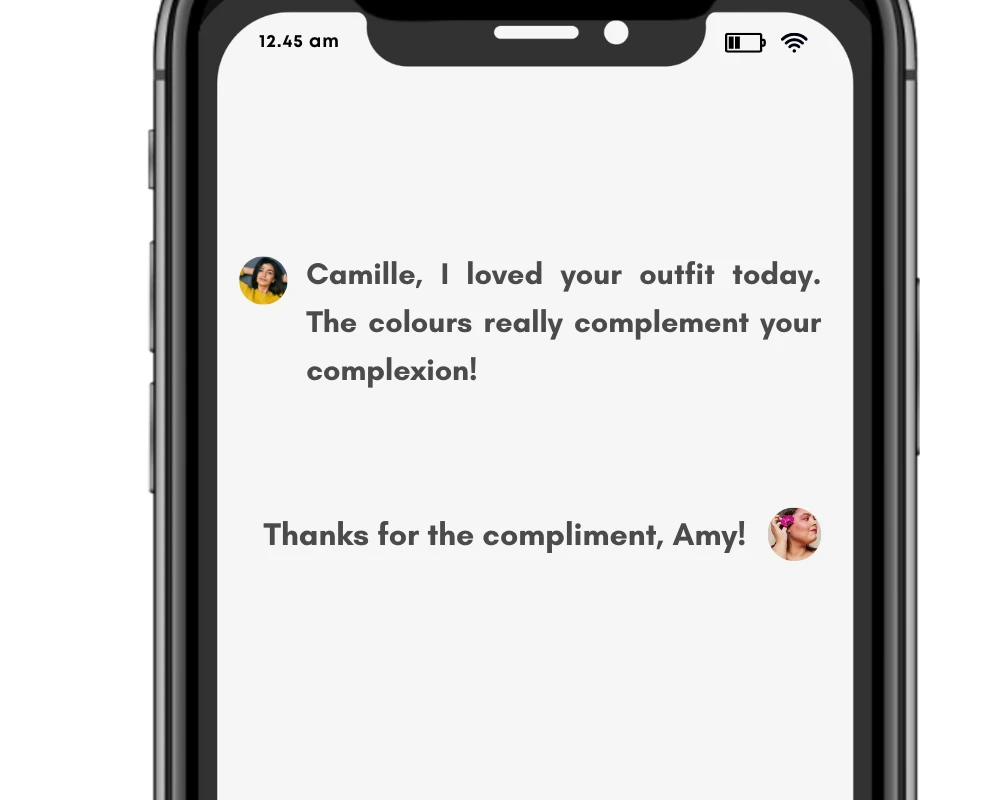
Compliment vs. complement: what's the difference?
If someone says you look nice, do you return the compliment or... complement? If the difference between them eludes, see below. It's complimentary.
Despite being a mere letter apart and sounding the same, "compliment" and "complement" are two different words that are not interchangeable.
Both complement and compliment have noun, verb, and adjective forms, making them slightly trickier homophones (i.e., words that sound the same but mean different things).
- Compliment (noun/verb) — an expression of praise or admiration; to praise someone.
- Complement (noun/verb) — something that completes or enhances something else; to complete or enhance.
The new curtains are a perfect complement to the room's decor.
She complimented his courage during the difficult presentation.
His quiet nature really compliments her outgoing personality.
I received many complements on my excellent public speaking.
Definitions and usage
Compliment (noun/verb)
An expression of praise or admiration. As a verb, to compliment means to say something nice or admiring to someone. As a noun, a compliment refers to the comment or expression of praise that's given.
Noun:
• She received several compliments on her speech.
• My compliments to the chef!
Verb:
• She complimented him on his excellent German.
• She complimented my vocabulary.
Complement (noun/verb)
As a verb, complement describes improving or enhancing something else by combining with it. As a noun, a complement refers to whichever thing enhances or improves (read: completes) what it's added to or made to be a part of.
Noun:
• This vegetable's sweetness is a perfect complement to heavier foods.
• The new curtains are a perfect complement to the room's decor.
Verb:
• This shade beautifully complements the color of your eyes.
• Her vibrant personality really complements his laid-back demeanor.
• We need players on the team that will complement each other's strengths and weaknesses.
Complimentary vs. complementary
As an adjective, complimentary can mean something free of charge (as in, "The hotel offers complimentary breakfast"). It can also describe a comment as a compliment; as in "She had some very complimentary remarks about my writing".
Complementary, as an adjective, is similar to its verb/noun form. It describes something (people or things) coming together to form a useful or improved combination (whether of skills, qualities, or aesthetically). For example, "The board members have different but complementary backgrounds" or "We need managers with unique but complementary skills".
Complimentary:
• After one or two complimentary remarks about her hosts, she got to the main part of her speech.
• She was happy to receive complimentary feedback on her essay.
Complementary:
• We provide a service that is essentially complementary to that of the banks.
• The board members have different but complementary backgrounds.
Phrases with 'compliment'
| Phrase | Meaning |
|---|---|
| a backhanded or left-handed compliment | An insult that's expressed as praise. |
| a compliment sandwich | Criticism or feedback that's sandwiched between comments of praise. |
| to return the compliment | Literally, to say something nice to someone after they've praised you. |
| compliments of the house | Said from a merchant or establishment when they offer something free to guests. |
| to fish for compliments | To attempt to elicit praise from someone. |
Synonyms & nearby words
Synonyms for compliment
Synonyms for complement
Pro tip! To remember the difference, think of "complement" as short for "complete", meaning something that completes or perfects something else.
Word origins
Complement: Late 14c., "means of completing; that which completes; what is needed to complete or fill up," from Old French compliement "accomplishment, fulfillment" (14c., Modern French complément), from Latin complementum "that which fills up or completes," from complere "fill up".
Compliment: Mid 17th century: from French compliment (noun), complimenter (verb), from Italian complimento 'fulfillment of the requirements of courtesy', from Latin complementum 'completion, fulfillment'.
Practice quiz: Compliment or complement?
She gave me a nice ______ on my outfit.
Those shoes perfectly ______ your dress!
He accepted her ______ with a smile.
The wine was a perfect ______ to the meal.
She knew how to ______ people sincerely.
FAQs
What is the main difference?
What does "compliment" mean?
What does "complement" mean?
Are complement and compliment interchangeable?
What's the difference, complimentary vs complementary?
Advertisement








.webp&w=3840&q=75&dpl=dpl_13tcGbrn5BXPQFsQmuQWqib9Y3DN)